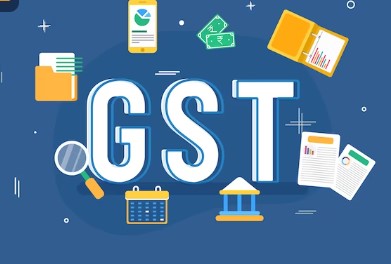
it's pocket friendly

it's hassle free

it's instant

it's completely online


it's pocket friendly

it's hassle free

it's instant

it's completely online
All Inclusive Transparent Pricing #NoHiddenCharges
This pricing plan includes free consultation
Fill inquiry form below to pay later
This pricing plan includes free consultation
Fill inquiry form below to pay later
This pricing plan includes free consultation
Fill inquiry form below to pay later
This pricing plan includes free consultation
Fill inquiry form below to pay later
The revocation of the cancellation of GST (Goods and Services Tax) registration refers to the process of reinstating a previously canceled GST registration. When a GST registration gets canceled due to various reasons, such as non-compliance, non-filing of returns, or other regulatory issues, the taxpayer can apply for revocation to regain the GST registration status.
Key points about the revocation of cancellation of GST:
Reasons for Cancellation: GST registrations might get canceled by tax authorities due to non-compliance, non-filing of returns, failure to furnish required documents, or other statutory reasons as specified under GST laws.
Revocation Process: Taxpayers seeking to reverse the cancellation of their GST registration need to apply for revocation within the stipulated timeline provided by the tax department.
Required Documentation: The application for revocation typically requires submission of relevant documents, such as an application form for revocation, explanation addressing the reasons for cancellation, financial statements, GST filing records, proof of compliance, identification documents, and any additional documents as specified by the authorities.
Compliance and Rectification: Along with the application, the taxpayer needs to demonstrate compliance with GST regulations and rectification of the issues that led to the cancellation of the registration.
Timeline for Application: Tax authorities usually specify a timeframe within which the taxpayer must apply for revocation after the cancellation of the GST registration. Adhering to this timeline is essential to initiate the revocation process.
Review and Decision: Upon submission of the application for revocation, tax authorities review the documents and circumstances before making a decision. The duration for the authorities to process the revocation may vary.
Consequences of Non-Revocation: Failing to apply for revocation or not meeting the specified requirements might result in continued cancellation of the GST registration, impacting the taxpayer’s ability to conduct business legally.
Appeal and Follow-up: If the application for revocation is rejected, taxpayers may have the option to appeal the decision by following prescribed procedures and providing additional relevant information as needed.
The revocation of the cancellation of GST registration enables businesses to rectify past compliance issues and resume operations within the GST framework, following necessary procedures and timelines as stipulated by the tax authorities.
Revoking the cancellation of GST registration is not mandatory, but it might be necessary for businesses or individuals who wish to continue their operations within the GST framework. When a GST registration is canceled due to non-compliance or other reasons, applying for revocation allows the taxpayer to regain the GST registration status and continue conducting business legally under the GST system.
However, if a taxpayer decides not to apply for the revocation of the canceled GST registration, they will not be able to carry out taxable activities or transactions within the GST framework. Consequently, they might face limitations in trading, supply chains, or other business operations that involve the GST.
While revocation is not mandatory per se, it becomes essential for those seeking to comply with GST regulations and continue their business activities under the GST framework. Failing to apply for revocation may restrict their ability to operate within the legal parameters defined by the GST laws and regulations.
General Documents / Informations Required from all assessees:
Application for Revocation: A formal application for revocation of the canceled GST registration needs to be submitted to the tax authorities. This application form can often be obtained from the official GST portal or provided by the tax department.
Explanation Letter: A detailed letter explaining the reasons for the cancellation and providing clarification or evidence regarding the rectification of issues that led to the cancellation.
Financial Documents: Financial statements, including balance sheets, profit and loss statements, or any other relevant financial records that demonstrate compliance with GST regulations and tax payments.
GST Filing Records: Copies of GST returns filed and payment receipts, if available, to show the taxpayer’s compliance with filing requirements and tax payments.
Proof of Compliance: Documents or evidence showing the steps taken to rectify non-compliance issues that led to the cancellation, such as rectification of errors, filing of pending returns, or payment of outstanding taxes.
Identification Documents: Personal identification documents of the authorized signatory or proprietor, such as Aadhar card, passport, or driver’s license, along with address proof.
Any Additional Documents: Other documents as specified by the tax authorities or relevant to the reasons for cancellation and revocation, such as business-related documents or agreements.
The due date for applying for the revocation of a canceled GST (Goods and Services Tax) registration is usually determined and communicated by the tax authorities. Upon cancellation of the GST registration, the taxpayer is generally provided with a specific timeframe within which they must apply for revocation to reinstate their registration status.
Failing to adhere to the specified deadline for applying for revocation may lead to further complications or challenges in reinstating the GST registration. It’s crucial for taxpayers to review any communication received from the tax department regarding the cancellation and carefully note the deadline provided for applying for revocation.
While the specific duration or deadline can vary based on individual cases or the discretion of the tax authorities, complying with the stipulated timeline for revocation is essential to initiate the process and potentially avoid further penalties or prolonged non-compliance issues. Therefore, taxpayers should act promptly and submit the revocation application within the timeline specified by the tax department to increase the chances of a successful reinstatement of the GST registration.
Cancellation of GST registration can occur due to reasons such as non-compliance, non-filing of returns, failure to furnish required documents, or other statutory reasons specified under GST laws.
Tax authorities typically inform taxpayers through official channels, such as email, messages, or letters, providing details about the cancellation and actions required for revocation.
Yes, tax authorities usually set a deadline for applying for the revocation of a canceled registration. Timely action is crucial to initiate the revocation process.
Documents might include an application for revocation, an explanation letter addressing cancellation reasons, financial statements, GST filing records, proof of compliance, and identification documents as specified by tax authorities.
It’s advisable to refrain from business operations until successful revocation to avoid complications or penalties. Resuming operations should occur after revocation.
Missing the deadline might lead to additional penalties or further actions by tax authorities. Timely action and guidance from tax officials are crucial.
The duration varies. After submission, tax authorities review documents before making a decision. Following up for updates is advisable.
Yes, taxpayers usually have the option to appeal a rejection by following prescribed procedures and providing additional relevant information if needed.
